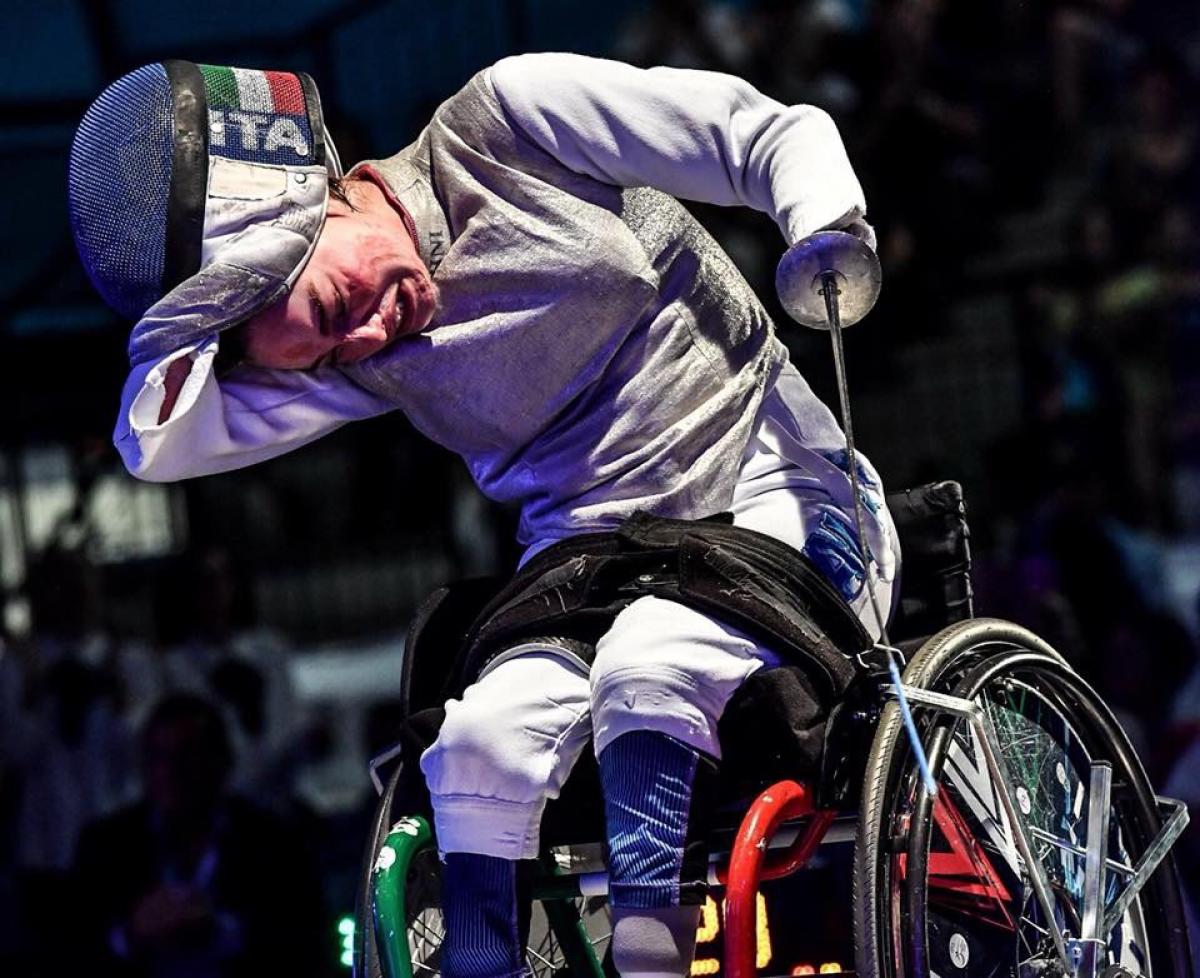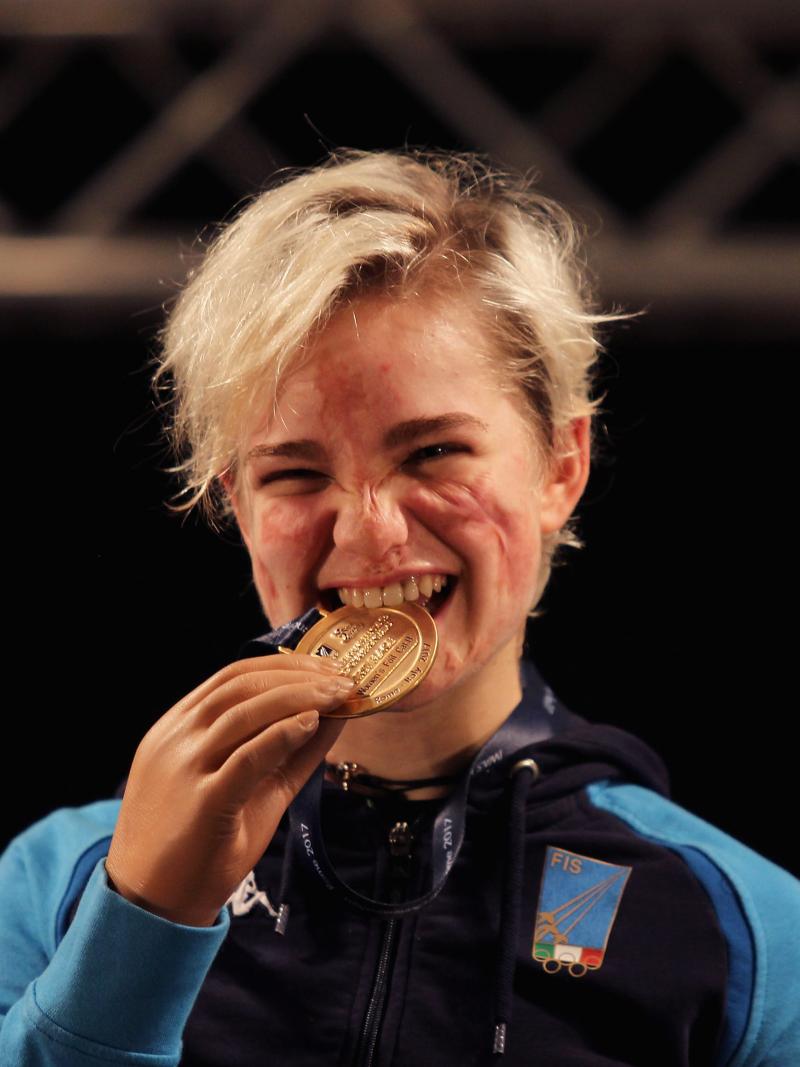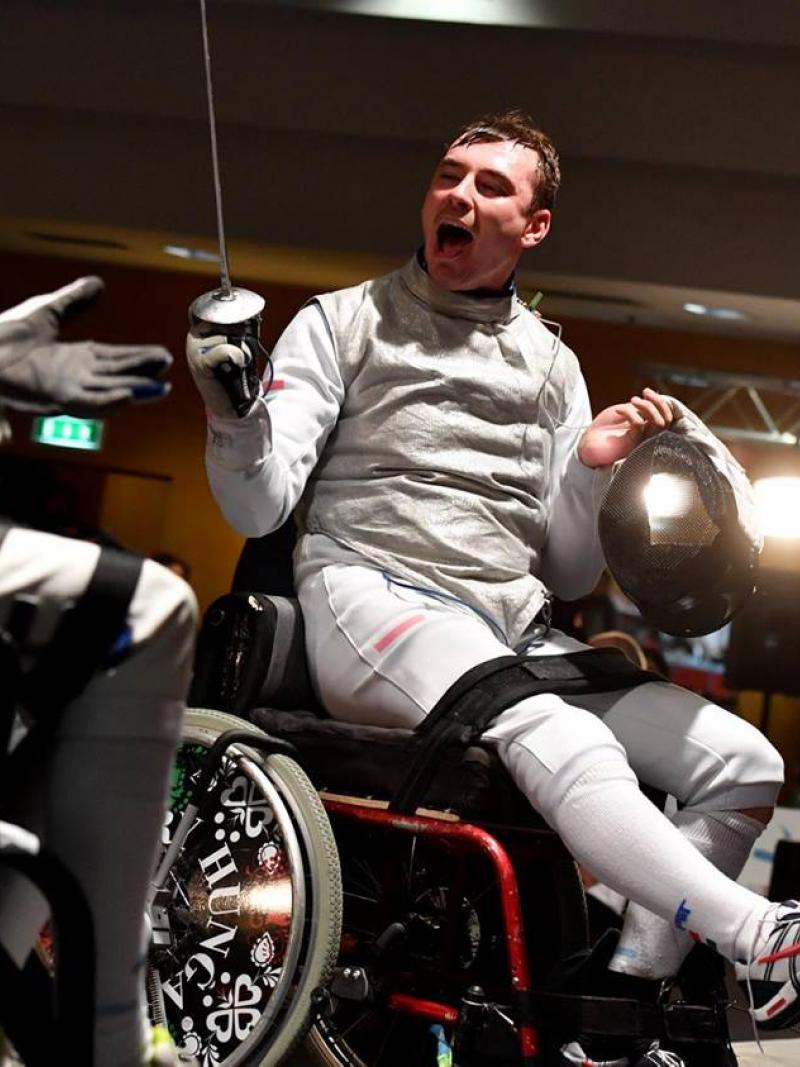Terni 2018: Bebe Vio celebrates trio
Italian sensation wins third European title 24 Sep 2018
Italy's Bebe Vio defended her foil B European title in Tenri, Italy
"The goal was to win this European Championship even if at the beginning of the season I had a hard time getting results"
Italy’s Paralympic, world and defending European champion Beatrice Vio did not disappoint on her home piste at the 2018 Wheelchair Fencing European Championships, which wrapped up on Saturday (22 September) in Terni.
The 21 year old captured the women’s foil category B gold medal for her third consecutive European title.
The Italian beat three Russians on her way to gold, first overcoming Ludmila Vasileva* 15-8.
In the semi-final it was Alesia Makrytskaya* (15-9) before a clash with Irina Mishurova* in the final – a repeat of the 2016 title match.
Vio, buoyed by her previous results, then dropped just one point against Mishurova to take an emotional home victory.
More Italian gold
There was more home joy when Marco Cima won the men’s equivalent.
Cima sailed through his opening match against Poland’s Zbigniew Wyganowski in the men’s foil category B 15-6 but faced a tougher challenge in the semi-final.
Going up against British world champion Dimitri Coutya, Cima just pipped his opponent to advance by one point.
Cima then beat Poland’s Jacek Gaworski with a thrilling 15-13 victory.
"I trained really hard this summer, I never stopped practicing, even when the conditions where difficult,” Cima said.
“In August it is really difficult to train properly, but I put holidays aside to chase this dream. The goal was to win this European Championship even if at the beginning of the season I had a hard time getting results. But I always knew that I was prepared for this competition.”
Clash of titans
The men’s epee category B final pitted world champion Coutya and Belarus’ Paralympic champion Andre Pranevich, with the British fencer emerging victorious.
Pranevich endured some close ties in the build-up, winning two matches by just one point. Coutya was fresher having had a slightly easier path.
The British fencer then executed an impressive display against Pranevich to win the gold with a score of 15-5, improving on his bronze medal from 2016.
“The guy I had [Pranevich], he’s so strong,” Coutya said.
“He’s the Paralympic champion, so to get to the finals with him at such a big competition and compete with him on the European stage is just incredible and it’s a huge honour.”
Still on top
Ukraine’s Paralympic and European champion Andrii Demchuk proved that he is still the man to beat in the men’s sabre category A.
He went toe-to-toe with Hungary’s 2016 silver medallist Richard Osvath, and survived with a 15-12 scoreline.
“This medal is really important for me because in previous years at European Championships I couldn’t win gold in sabre,” Demchuk said.
“And now since two years [the last two editions] I’ve managed to do it!”
Golds finally
Poland’s Adrian Castro and Russia’s Irina Mishurova* won their first European titles in Tenri.
Castro had already secured the world title in 2015 and Paralympic bronze in 2016 in the men’s sabre category B but the Europeans win had eluded him.
That all changed in Terni after he overcame teammate Grzegorz Pluta 15-11 in the final.
In the women’s epee category B Mishurova showed grit and determination in her quarter-final match against defending champion and world title holder compatriot Viktoria Boykova.
Boykova put up a great fight but Mishurova was on a mission, securing a semi-final place.
Mishurova then got past Ukraine’s Olena Fedota to face Belarus’ Alesia Makrytskaya in the final.
The 25-year-old Russian dispatched her opponent with a score of 15-6 to secure her first European gold.
*Editor's note: The International Paralympic Committee suspended the Russian Paralympic Committee on 7 August 2016 for its inability to fulfil its IPC membership responsibilities and obligations, in particular its obligation to comply with the IPC Anti-Doping Code and the World Anti-Doping Code (to which it is also a signatory). As a result of the suspension, Russian athletes cannot enter IPC sanctioned events or competitions, including the Paralympic Games.

 Facebook
Facebook
 Instagram
Instagram
 Twitter
Twitter
 Youtube
Youtube
 TikTok
TikTok
 Newsletter Subscribe
Newsletter Subscribe


